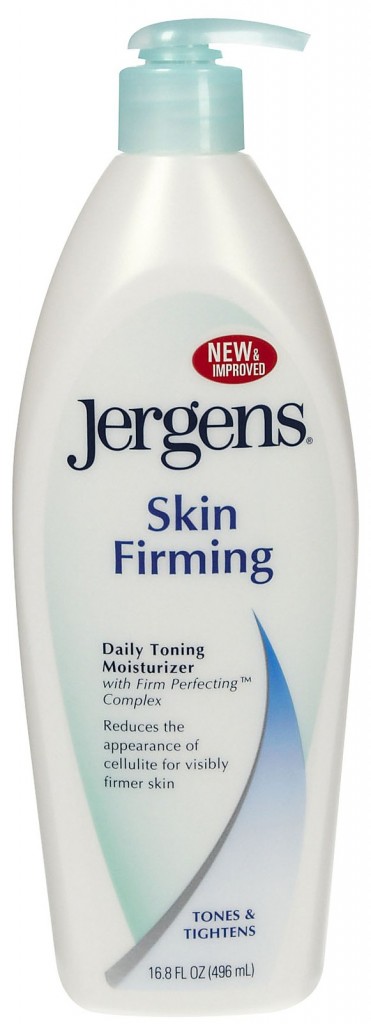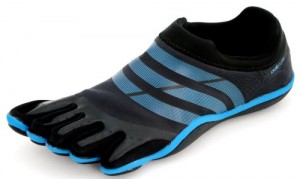 Top Lawsuits
Top Lawsuits
Food fraud de jour… We’re talking about Chobani Greek Yogurt to be specific. The “nothing but good” yogurt, if you recall. Chobani Inc is facing a class action lawsuit over alleged deceptive marketing claims (aka consumer fraud) concerning the use of certain terms on its Greek yogurt products. Who would have thought? Yogurt “terminology”? The Chobani lawsuit claims the terms violate federal and state food labeling laws.
Yes indeed, folks, that old chestnut—again. I bet if all food ingredients were listed by their chemical names—in any or all products—the average consumer would likely need a chemistry degree to read food labeling … although you pretty much do now…
Ah yes. The facts: Filed at the US District Court for the Northern District of California by California consumer Katie Kane, the lawsuit alleges Chobani’s use of ‘evaporated cane juice’, ‘all natural ingredients’ and ‘only natural ingredients’ as terms used to describe its 18 flavors of Greek yogurt products. The lawsuit claims Chobani failed to disclose that ‘evaporated cane juice’ is commonly referred to as sugar or dried cane syrup.
Federal and California state food labeling laws forbid the use of ‘natural’ labeling if the product contains artificial ingredients, flavoring, coloring or chemical preservatives, the lawsuit claims. Kane also alleges that Chobani made false claims in violation of these laws to actively promote the “naturalness and health benefits of its products” and drive sales.
Ok—well if you want to go down that road—show me company that isn’t on the green/health bandwagon? Oh yes, Exxon Mobil. But that’ll be coming up in Top Settlements.
The Chobani lawsuit further states, “For example, the Nutrition Facts for Chobani’s Greek Yogurt, Pomegranate flavor, state that it has 19 grams of sugar, but the ingredient section fails to list ‘sugar’ and/or ‘dried cane syrup’ as an ingredient.”
“If a manufacturer is going to make a claim on a food label, the label must meet certain legal requirements that help consumers make informed choices and ensure that they are not misled. In promoting the naturalness and health benefits of its Misbranded Food Products, Defendant claims to understand the importance of communicating responsibly about its products,” the lawsuit states.
“Nevertheless, Defendant has made, and continues to make false and deceptive claims on its Misbranded Food Products in violation of federal and California laws that govern the types of representations that can be made on food labels.”
It’s off to court they go…
Top Settlements
Ten Years After…As I was saying about Exxon Mobil—here’s one for the little guy. Bit late, bit small, never should have happened in the first place, but hey—it’s a result—because the townspeople of Pascoag, RI stood up for themselves. A Providence Superior Court Judge has approved a $7 million settlement of an environmental class action lawsuit brought by the citizens of the Town of Pascoag, Rhode Island and the Rhode Island Water District against Exxon Mobil Corporation as a result of the contamination of their well water supply by MTBE in 2001. According to attorneys for the class, the Exxon Mobil settlement finally brings some satisfaction to the citizens of Pascoag after almost ten years of litigation against Exxon Mobil for the contamination of the Town of Pascoag’s water supply.
Methyl Tertiary Butyl Ether (MTBE), a gasoline additive that was mandated by the Clean Air Act of 1990, requiring that fuel oxygenates be added to gasoline to reduce carbon dioxide in the air, was first noticed in the Summer of 2001, when a strong disagreeable odor had been reported by various Public Utility District customers.
On August 30, 2001, a resident of Pascoag, Rhode Island requested that a sample of his tap water be tested, as it had a bad taste. MTBE concentrations, above allowable state limits, were detected. Thereafter, an investigation by the Department of Environmental Management (DEM) revealed that gasoline containing MTBE had leaked from the Main Street Mobil Gasoline Service Station and contaminated the town’s well water. The DEM ordered that the Pascoag well pumping stations be shut down, and arrangements were made to pipe in well water from the neighboring Town of Harrisville.
In 2003 a lawsuit was filed against Exxon Mobil (yes—it’s really taken 9-10 years) alleging that the use of MTBE in gasoline was among other things, a defective product. The investigation revealed that Exxon Mobil and other oil companies knew MTBE posed a threat to drinking water years before the industry began blending the additive with gasoline.
According to a statement issued by attorneys for the town of Pascoag, “the Pascoag, Rhode Island case was the largest MTBE case in the history of the state.” Court documents showed that the oil companies knew about MTBE’s problems as early as the early 1980’s. The oil industry defended the use of MTBE, claiming that the federal government allowed MTBE to be used with knowledge of its characteristics.
MTBE readily dissolves in water and does not cling to soil near a spill site, as most chemicals do. It degrades slowly and travels quickly and travels far in water.” Other dangerous gasoline compounds, like benzene, are rarely found more than 300 feet from a spill site, while MTBE has been found, as in this case, thousands of feet away,” the plaintiffs attorney stated in the press release. Documents and statements from Exxon Mobil and other oil companies show they knew all this almost as soon as they began producing MTBE in the late 1990’s. When 20 percent of the tanks nationwide were known to leak, they put MTBE in tanks knowing it would make its way to ground water and drinking water supplies.
In this case, the utility and citizens that sued over MTBE were not seeking damages because customers got sick from drinking the additive. Such claims are nearly impossible to prove, said the attorney for the plaintiffs. Instead, the damages were to compensate the homeowners for their inconvenience and to the Pascoag Public Utility District to allow them to install new wells, plus pipe lines to bring the water to homes once served by private wells. This includes the cost of putting filters in, digging up dirty soil and installing systems to pump the MTBE out of the water.
Better in a Beamer? …maybe not… Here’s something we’re seeing a lot more of these days—privacy class actions. The offenders in this class action lawsuit are BMW and its telematics services provider, Agero Connected Services, Inc. (formerly known as ATX Group, Inc.) The lawsuit claims that BMW recorded BMW Assist calls without first disclosing that a call may be monitored or recorded. (Can you imagine listening to all those recordings? OMG.)
The skinny: The BMW Assist settlement will resolve a class action lawsuit, entitled Skuro v. BMW of North America, LLC, that alleges BMW and its telematics services provider, Agero Connected Services, Inc. (formerly known as ATX Group, Inc.) violated several consumer privacy laws by allegedly recording BMW Assist calls.
Class Members of the BMW Assist class action settlement include all individuals who connected to the BMW Assist program between October 13, 2009 and February 1, 2011 and the BMW vehicle owner was receiving benefits in the BMW Assist program with a California billing address. The settlement could affect anyone who connected to the BMW Assist program during the class period, including entitlement to benefits, including up to $50 cash.
BMW and ATX deny any wrongdoing, but have agreed to a class action lawsuit settlement to avoid the expense of ongoing litigation.
Class Members of the BMW Assist class action lawsuit settlement can choose to receive one of the following two benefits:
1. Service Benefit. “Service Benefit” means either a 6-month upgrade to the BMW Assist “convenience plan” (for Class Members who currently have an active basic safety plan on their BMW vehicle), or a 6-month extension to the BMW Assist basic safety plan (for Class Members who currently have an active basic safety plan on their BMW vehicle, or Class Members who have no BMW Assist Service on their Class Vehicle). To receive the Service Benefit, Class Members must enter into a Subscription Agreement Addendum no later than July 10, 2012.
2. Non-Revisionary Fund. Class Members who decline or who do not have the option for the Service Benefit can file a claim for a cash payment from the Non-Revisionary Fund, which will be paid on a pro rata basis, up to $50, to Class Members who file a valid claim postmarked no later than July 10, 2012.
More information about the settlement, a Subscription Agreement Addendum and claims forms can be found at the Settlement Administrator’s website: www.BMWAssistSettlement.com.
See you at the bar—happy, happy…and don’t ask to see the ingredients in your Martini.
 Top Lawsuits
Top Lawsuits



